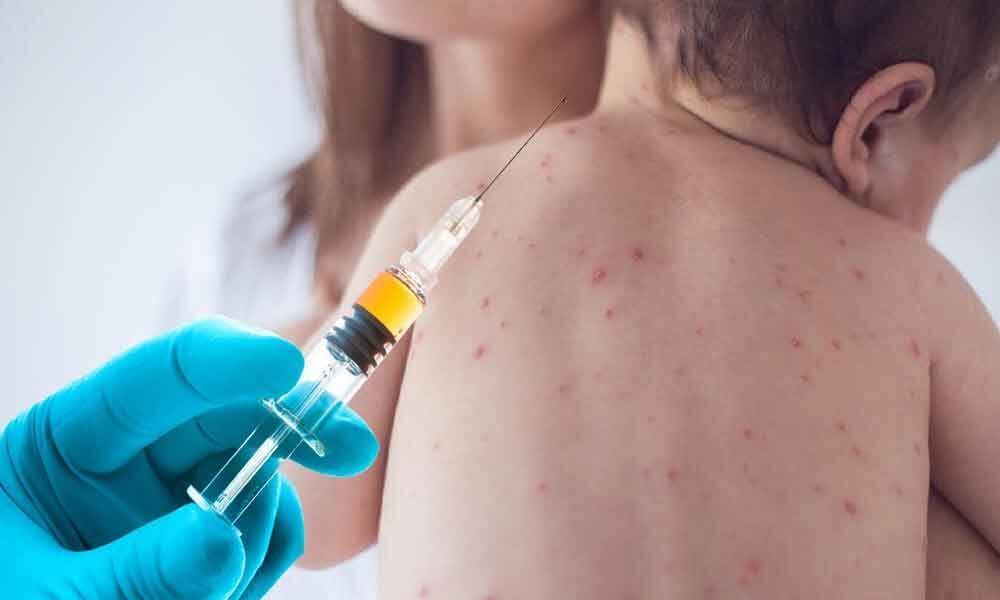Study warns of measles outbreak
 Study warns of measles outbreak
Study warns of measles outbreakNew research has indicated that a decline in measles vaccination could lead to the outbreak of the disease in full swing.
New research has indicated that a decline in measles vaccination could lead to the outbreak of the disease in full swing. The research was published in the journal, Neuron. According to the study, without a renewed focus on measles vaccination efforts, the disease may rebound in full force.
Measles is an extremely contagious illness transmitted through respiratory droplets and aerosolised particles that can remain in the air for up to two hours. Most often seen in young children, the disease is characterised by fever, malaise, nasal congestion, conjunctivitis, cough and a red, splotchy rash. Most people with measles recover without complications within a week.
However, for infants, people with immune deficiencies, and other vulnerable populations, the consequences of measles infection can be severe. Rare complications can occur, including pneumonia, encephalitis, other secondary infections, blindness and even death.
Before the measles vaccine was developed, the disease killed between two and three million people annually worldwide. Today, measles still causes more than 100,000 deaths globally each year.
In 2000, measles was declared to be eliminated in the United States, when no sustained transmission of the virus was seen in this country for more than 12 months. Today, however, the United States and many other countries that had also eliminated the disease are experiencing concerning outbreaks of measles because of declines in measles vaccine coverage.
Measles can be prevented with a vaccine that is both highly effective and safe. Each complication and death related to measles is a "preventable tragedy that could have been avoided through vaccination," the authors wrote in the study.
Some people are reluctant to vaccinate their children based on widespread misinformation about the vaccine. For example, they may fear that the vaccine raises their child's risk of autism, a falsehood based on a debunked and fraudulent claim.
A very small number of people have valid medical contraindications to the measles vaccine, such as certain immune deficiencies, but almost everyone can be safely vaccinated.
When levels of vaccine coverage fall, the weakened umbrella of protection provided by herd immunity, indirect protection that results when a sufficiently high percentage of the community is immune to the disease, places unvaccinated young children and immune compromised people at greater risk.
This can have disastrous consequences with measles. The authors described a case in which a single child with measles infected 23 other children in a paediatric oncology clinic, with a fatality rate of 21 per cent. If vaccination rates continue to decline, measles outbreaks may become even more frequent, a prospect the authors described as "alarming."
This is particularly confounding, they noted, since measles is one of the most easily prevented contagious illnesses. In fact, it is possible to eliminate and even eradicate the disease. However, they say, achieving this goal will require collective action on the part of parents and healthcare practitioners alike.








